Understand your smoking triggers and cravings
When you quit smoking, you may feel strong urges to smoke, known as cravings.
These can be triggered by stress, certain situations and daily routines. Knowing your triggers helps you manage cravings when they strike.
What are cravings and triggers?
A smoking craving is a strong urge to smoke. It happens because your body is used to nicotine, and without it, you feel like you need a cigarette.
Cravings can be triggered by things like stress or routines, such as having a coffee or waiting for the bus.
When you know your triggers you can avoid situations that make you want to smoke. It also prepares you to handle cravings when they happen, making it easier to stay on track.
Did you know?
Cravings are hardest in the first 28 days as your body adjusts to no nicotine. After that, they often start to get easier.
Common smoking triggers
Smoking often becomes part of your daily routine without you even realising. It can be linked to your routines, emotions or certain situations.
Have a look at the list of common triggers below. Do any of these make you feel like smoking?

Routine triggers
I feel like smoking when I:
- drink coffee
- drive or walk somewhere
- wait for the bus, train or a ride
- take a break at work
- finish eating
- am on the phone
- watch TV or relax at home
- wake up in the morning or before going to bed
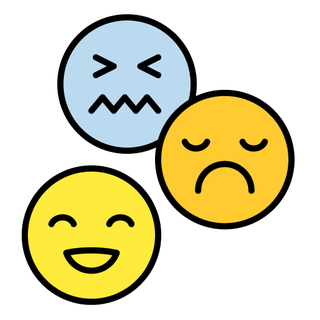
Emotional triggers
I feel like smoking when I am:
- bored or restless
- angry
- sad or low in mood
- excited or happy
- stressed or under pressure
- anxious, worried or nervous
- lonely
- frustrated
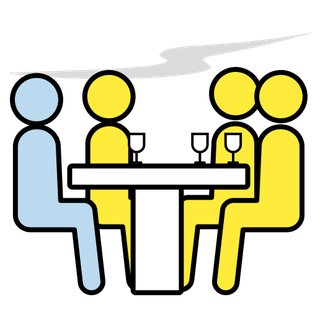
Situation triggers
I feel like smoking when:
- I am with other smokers at work, at home or in social settings
- I am offered a cigarette
- I drink alcohol
- I see other people smoke
- I smell cigarette smoke
- I am socialising with friends or family
If any of these sound familiar, that’s okay. You are not alone, most smokers have triggers like these.
But once you know your own triggers, you can start planning how to deal with them.
Cravings from withdrawals
Cravings are not just caused by habits. Nicotine withdrawal can also trigger them. When you stop smoking, your body goes through an adjustment period as it gets used to the lack of nicotine.
This can make you:
- irritable
- restless
- have strong urges to smoke, especially at times in the day when you used to have a cigarette
These feelings are a normal part of quitting but can make cravings even more powerful.
There are products that can help ease cravings and make quitting easier. Read our guide to find the best stop-smoking product for you.
Did you know?
If you combine nicotine-free medicine with nicotine replacement therapy (NRT), you are over 5 times more likely to quit smoking for good!
Tips to handle triggers and cravings
When you’re quitting smoking, planning is key. Having a strategy in place can make all the difference in helping you stay smoke free.

Plan for tricky situations
Think about moments that may make you want to smoke.
For example, how will you handle smoke breaks at work? You could:
- take your break at a different time
- go for a walk instead
- vape, if that's part of your plan
Or if someone offers you a cigarette, be ready with a response. Practise saying things like:
- "No thanks, I don’t smoke anymore."
- "I’m quitting for my health."
- "I’m smoke free."
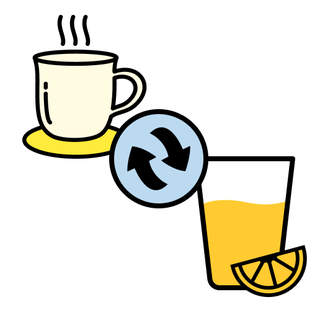
Change your habits
- Break habits tied to smoking (for example, swap coffee for juice in the morning).
- Avoid places and people that trigger smoking, especially in the early days.
- Alcohol weakens self-control and makes cravings harder to resist. Try opting for non-alcoholic drinks when you’re out, especially during the first 28 days of quitting.
- If your commute triggers an urge to smoke, try taking a different route to work, or listening to new music to change your focus.
- Instead of smoking after a meal, try chewing minty gum or brushing your teeth.

Build a support system
- Spend more time with friends who don’t smoke. They’ll help you stay focused and might even join you in activities that keep you smoke free.
- Get a quit buddy. Whether it's a friend, family member, or someone else who's also quitting, having someone to share the journey with can keep you motivated.
- Ask your friends and family to keep you distracted. For example, when you have a strong craving, call a friend to encourage and support you.
Friends and family don't always know the best way to support you. Share our guide on how to help someone quit smoking with them.
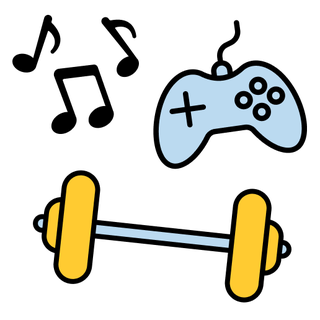
Keep yourself busy
Cravings usually only last a few minutes, so have a distraction ready.
- Play an online game, try a riddle, or do a simple workout. For example, every time you get a craving, why not try a few push-ups or sit-ups?
- Keep your hands busy with a fidget spinner.
- Listen to music to change your mood and break the craving cycle.
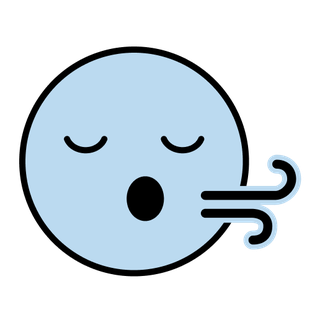
Manage stress
Cravings can come when you're stressed. Practice stress-relief techniques to stay in control when cravings hit. Try this simple 4-5-6 breathing exercise to calm yourself:
- breathe in through your nose for 4 seconds
- hold for 5 seconds
- breathe out through your mouth for 6 seconds
Watch this video from Every Mind Matters to learn more effective ways to manage stress.
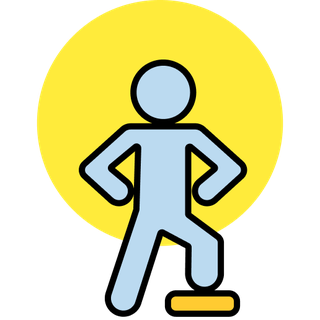
Stay motivated
If you’re tempted by "just one," remember that even a single cigarette is harmful. Every cigarette takes minutes from your life. Stay strong!
When cravings hit, try saying these to yourself:
- "I’m stronger than this."
- "Cravings last a few minutes, but my health is forever."
- "I refuse to give in to smoking."
- "Not one puff ever (N.O.P.E.)."

Create a smoke-free environment
Keep temptation at bay. Throw away your cigarettes, lighters and ashtrays and make sure you've got your stop smoking products ready. Show smoking that you mean business!
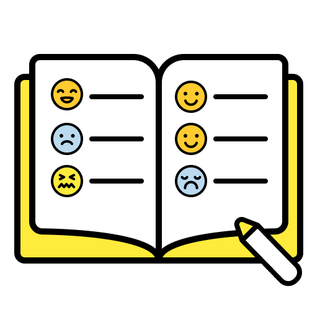
Track your progress
At the end of each week, reflect on how it went. Did any moments catch you off guard? How did you get through them? Write down what helped you stay smoke free and keep building on your success.
You can beat cravings!
Quitting smoking can be challenging, but by recognising your triggers, planning ahead and using the right products, you can stay in control.
Every craving you resist is a step closer to a healthier, smoke-free life. Stay positive, stick to your plan and remember, you’ve got the strength to quit for good!

Nicotine withdrawal symptoms
When you quit smoking, nicotine withdrawal can make you feel irritable, restless, or give you strong cravings. This is completely normal. Learn how to manage these symptoms from our guide.